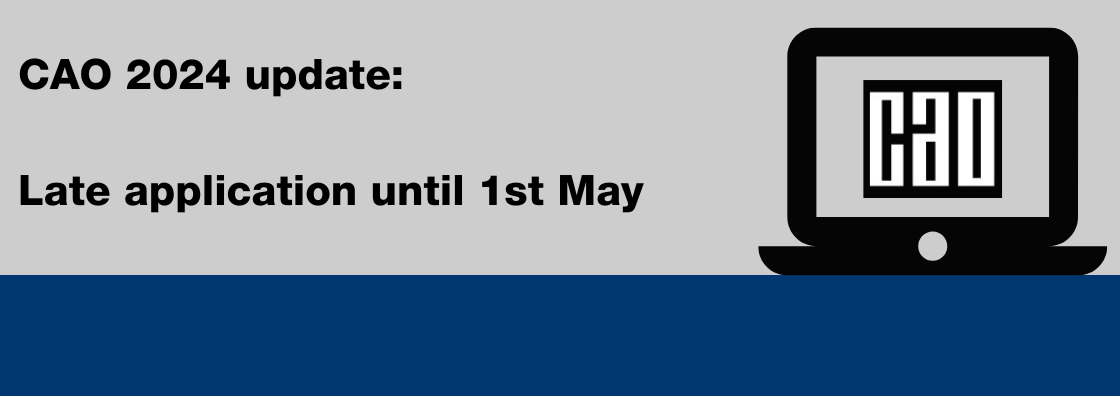Studying at third level differs in many ways from second level and further education. Along with a considerably larger campus comes a new university language. Here are some terms to get you started.
ACADEMIC ADVISORY OFFICE
This office functions as a convenient first point of contact for students who wish to seek advice on general issues that may arise from their relationship with the University. Information is also provided which will assist students in accessing information on regulations and progression routes to their degree.
ACCESS COURSES
Courses designed to prepare students for entry into Higher Education, and which provide the underpinning knowledge and skills needed to progress to a degree course at a university or college.
ALUMNI
Graduates of the University. Maynooth Alumni Association provides a range of benefits, as well as the chance to stay involved with Maynooth University.
ASSESSMENT
Process of checking and marking coursework. Depending on the degree course, assessments may include examinations, essays, project work, reports or a combination of any of these.
ASSIGNMENTS
Assignments take the form of essays or project work, which require reading and independent research. A certain amount of marks will be given for assignments, and these will contribute to the overall grade for continuous assessment each year. In first year, students are given guidelines on how to prepare and present assignments.
BACHELOR'S DEGREE
Undergraduate degree qualification awarded by the University (also referred to as a ‘first degree’).
BTEC AWARDS
Award given for vocational subjects by the British Business and Technology Education Council.
CAREER & EMPLOYABILITY SERVICE
We’ll help with getting started, finding ideas and exploring career options, gaining experience and growing your professional skills, preparing for and making the most of your academic placement (internship), and options after your course including job opportunities and postgraduate study.
CONTINUOUS ASSESSMENT
Refers to the assessment of students’ ongoing work, rather than an end of term examination or essay.
COURSE WORK
A piece of work required as part of a degree course.
CREDITS - ECTS – EUROPEAN CREDIT TRANSFER SCHEME
This is a standard for comparing the study attainment and performance of students of higher education across the European Union and other collaborating European countries. For successfully completed studies, ECTS credits are awarded. One academic year corresponds to 60 ECTS credits.
CRITICAL SKILLS COURSES
Optional 15 credit first year courses designed to help students to learn, practice and develop various essential skills that will support their ongoing studies.
DEGREE
Usually three/four years full-time or four to six years part time leading to the University award of Bachelor or Master.
DEGREE CLASSIFICATION
The grading scheme for undergraduate degrees. Honours degrees can either be first class, ‘upper’ (2:1) and ‘lower’ (2:2) second class, or third class honours.
DISSERTATION
A major written piece of work or research project undertaken in the final year of an undergraduate honours degree course.
ELECTIVES
Electives allow students to expand their university education by providing the opportunity to study an area outside of their chosen degree programme. An Elective is 10 credits and would make up 1/6 of a student’s study in second year.
ENROLMENT
The process where students become registered with the University.
ESSAY
A written piece of work on a particular topic.
FACULTY
A group of academic departments defined by shared interests (e.g. Social Sciences).
FETAC (QQI)
The Further Education Training and Awards Council.
FOUNDATION YEAR
If an applicant’s qualifications are not in the required subjects, or at the required grades to meet the entry requirements for the chosen degree, they may be in a position to do a one year foundation course. If this foundation course is completed to the required standard, the applicant is guaranteed a place on the first year of their chosen degree.
FRESHER
A term used for undergraduate students starting the first year of their course.
GRADUATE
Someone who has successfully completed a degree programme at the University. Maynooth graduates are automatic members of the Maynooth Alumni Association.
HETAC
The Higher Education Training and Awards Council.
HONOURS (HONS) DEGREE
A full undergraduate degree that usually requires completion of a final year dissertation or research project. This is a Level 8 award on the National Framework of Qualifications.
LAB WORK
Certain degrees, especially within the Faculty of Science and Engineering, involve a substantial amount of laboratory work. This consists of a series of hands-on, practical sessions where students enjoy the opportunity to explore the reality behind the theory of their chosen subjects, under the supervision of experienced staff members.
LECTURES
Students are expected to attend each one of a series of lectures as part of the degree. Lectures address the core of the subjects, introducing the main ideas, and providing a guide to further research and reading. Lectures are delivered to groups of students, varying in size from 40 to 450 people.
LECTURERS OR TUTORS
Lecturers and tutors are members of the University academic staff and have responsibility for teaching and helping students with their studies.
MASTERS DEGREE
An academic degree awarded by the University upon completion of at least one year of prescribed study beyond the bachelors degree.
MATURE APPLICANT
An applicant who is 23 years of age on January 1st of the year of entry to the University. For part-time degrees the mature age requirement is 21 on January 1st of the year of entry.
MAYNOOTH EDUCATION
New revised curriculum that offers greater flexibility and choice to students, including: broader CAO entry routes, optional first year Critical Skills courses, optional second year Electives, more flexible progression routes in second year and experiential learning. Some restrictions apply (depending on specific degree accreditation requirements).
MODULES
Degree programmes are made up of modules in a range of subjects. A module is a self-contained fraction of the workload for the year, and carries a unique examination or assessment mark. Different modules are given different credit weightings, for example, a module on the study of modern drama, as part of English literature (MH101), may be 2.5 credits. An entire year of an undergraduate degree programme is typically 60 credits. The credit system is based on the European Credit Transfer System (ECTS), which provides common procedures, to guarantee academic recognition of studies at institutions offering ECTS-based programmes across Europe. Within the chosen degree programme, there is a range of modules – some compulsory, some required, and some optional. Compulsory and optional modules are just that. Required modules are compulsory and must be passed in order to progress to the next year of your degree. For more information on modules, and to see the structure of the various degree programmes in terms of modules and credits visit www.maynoothuniversity.ie/ourcourses
MOODLE
Moodle is a password-protected space used by staff and students at Maynooth University to share teaching materials, information and online activities. The lecturers using Moodle direct students towards the relevant spaces for the modules they teach.
QQI
Quality and Qualifications Ireland. Their functions include those previously carried out by FETAC, HETAC, the Irish Universities Quality Board (IUQB) and the National Qualifications Authority of Ireland (NQAI).
SINGLE MAJOR, MAJOR/MINOR, DOUBLE MAJOR, MINOR
Students normally take 60 credits in each academic year.
Single Major: students normally take 50 or 60 credits in one subject.
Major/Minor: students take 40 credits in their Major subject and 20 credits in their Minor.
A Double Major degree is 30 credits in each of two subjects.


